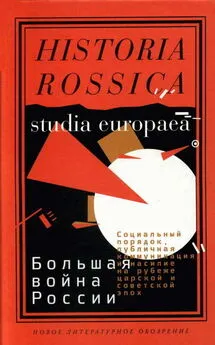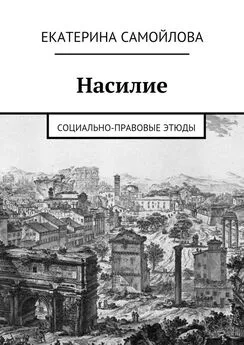Дуглас Норт - Насилие и социальные порядки
- Название:Насилие и социальные порядки
- Автор:
- Жанр:
- Издательство:Института Гайдара
- Год:2011
- Город:Москва
- ISBN:978-5-93255-303-9
- Рейтинг:
- Избранное:Добавить в избранное
-
Отзывы:
-
Ваша оценка:
Дуглас Норт - Насилие и социальные порядки краткое содержание
В этой книге предлагается новый подход к проблеме насилия и показывается тесная взаимосвязь экономического и политическо¬го поведения. Большинство обществ, относящихся к «естественным государствам», ограничивают насилие при помощи политического манипулирования экономикой для создания привилегированных групп интересов. Это позволяет ограничить применение насилия влиятельными индивидами, но одновременно создает препятствия для экономического и политического развития. С другой стороны, современные общества создают открытый доступ к экономическим и политическим организациям, стимулируя политическую и эконо¬мическую конкуренцию. Эта книга помогает понять, почему в поли¬тическом и в экономическом отношении общества открытого досту¬па более развиты, чем «естественные государства», и каким обра¬зом примерно двадцати пяти странам удалось совершить переход от одного типа общества к другому.
Насилие и социальные порядки - читать онлайн бесплатно полную версию (весь текст целиком)
Интервал:
Закладка:
Brennan, Geoffrey, and Buchanan, James M. (1980). The power to tax: Analytical foundations of a fiscal constitution. New York: Cambridge University Press.
Brumfiel, Elizabeth. (1987). Elite and utilitarian crafts in the Aztec state. In Elizabeth Brumfiel and Timothy Earle (Eds), Specialization, exchange, and complex societies (pp. 102–118). Cambridge: Cambridge University Press.
Brundage, Burr Cartwright. (1972). A rain of darts: The Mexica Aztecs. Austin: University of Texas Press.
Buchanan, James М., Tollison, Robert D., and Tulloch, Gordon. (1980). Toward a theory of the rent-seeking society. College Station: Texas A&M University.
Bueno de Mesquita, Bruce, Smith, Alastair, Siverson, Randolph М., andMorrow, James D. (2003). The logic ofpolitical survival. Cambridge, MA: MIT Press.
Bulmer-Thomas, Ivor. (1953). The party system in Great Britain. London: Phoenix House.
Bulmer-Thomas, Ivor. (1965). The growth of the British party system. London: John Baker.
Burton, Michael, Gunther, Richard, and Higley, John. (1992). Introduction: Elite transformations and democratic regimes. In John Higley and Richard Gunther (Eds), Elites and democratic consolidation in Latin America and Southern Europe. Cambridge: Cambridge University Press.
Butteifield, Herbert. (1965 [1931]). The Whig interpretation of history. New York: W.W. Norton.
Cadman, John W. (1949). The corporation in New Jersey: Business and politics, 1791–1875. Cambridge: Harvard University Press.
Callender, Guy Stevens. (1902). The early transportation and banking enterprises of the states in relation to the growth of corporations. Quarterly Journal ofEconomics, 17 (1), 111–162.
Campbell, Bruce M.S. (2000). English seigniorial agriculture, 1250–1450. Cambridge: Cambridge University Press.
Campbell, Peter. (1958). French electoral systems and elections since 1789. Hamden, CT: Archon Books.
Carlos, Ann, Neal, Larry, and Wandscheider, Kirsten. (2009). The origins of the national debt: The financing and re-financing of the War of Spanish Succession. Working Paper.
Carrasco, Pedro. (1999). The Tenochca empire of ancient Mexico: The triple alliance of Tenochtitlan, Tetzcoco, and Tlacopan. Norman: University of Oklahoma Press.
Caso, Alfonso. (1958). The Aztecs: People of the sun. Norman: University of Oklahoma Press.
Chang, Kwang-chih. (1983). Art, myth, and ritual: The path to political authority in China. Cambridge, MA: Harvard University Press.
Clanchy, М. T. (1965). The treatise on the laws and customs of the realm of England commonly called Glanvill. (G.D.G.Hall, Trans, and Ed.). London: Nelson.
Clark, Gregory. (2005). The condition of the working-class in England, 1209–2004. Journal of Political Economy, 113 (6), 1307–1340.
Clark, Gregory. (2007a). The long march of history: Farm wages, population growth, and economic growth, England 1209–1869. Economic History Review, 60 (1), 97-136.
Clark, Gregory. (2007b). A farewell to alms: A brief economic history of the world. Princeton: Princeton University Press.
Clark, Gregory. (2007c). A review of Avner Griefs Institutions and the path to the modern economy: Lessons from medieval trade. Journal ofEconomic Literature, XLV (3), 727–743.
Clark, J. C.D. (1985). English society 1688–1832. Cambridge: Cambridge University Press.
Coates, Dennis, Heckelman, Jac C., and Wilson, Bonnie. (2007). The determinants ofinterests group formation. Public Choice, 133, 377–391.
Cole, ArthurH. (1970). The committee on research in economic history: An historical sketch. Journal ofEconomic History, 20 (4), 723–741.
Coleman, James S. (1974). Power and the structure of society. New York: W.W.Norton.
Coleman, James S. (1990). Foundations of social theory. Cambridge, MA: Harvard University Press.
Collins, James В. (1995). The state in early modern France. New York: Cambridge University Press.
Conrad, Geoffrey W., and D'emarest, Arthur A. (1984). Religion and empire: The dynamics of Aztec and Inca expansionism. New York: Cambridge University Press.
Coss, PR (1989). Bastard feudalism revisited. Past and Present, 125, 27–64.
Cooper, J. P. (1983). Land, men, and beliefs: Studies in early modern history. (G.E.AylmerandJ.S.Morrill, Eds). London: Hambledon Press.
Сох, Gary. (1987). The efficient secret: The cabinet and the development of political parties in Victorian England. New York: Cambridge University Press.
Cox, Gary. (1997). Making votes count: Strategic coordination in the world’s electoral systems. New York: Cambridge University Press.
Crafts, N.F.R. (1998). Forging ahead and falling behind: The rise and relative decline of the first industrial nation. Journal of Economic Perspectives, 12 (2), 193–210.
Creighton, Andrew L. (1990). The emergence of incorporation as a legal form for organizations. Unpublished doctoral dissertation, Stanford University.
Dahl, Robert A. (1962). Who governs? New Haven, CT: Yale University Press.
Dahl, RobertA. (1971). Polyarchy: Participation and opposition. New Haven, CT: Yale University Press.
Davis, John P. (1961). Corporations: A study of the development of the origin and development of great business combinations and their relation to the authority of the state. New York: Capricorn.
Davis, Joseph Stancliffe. (1917). Essays in the earlier history of American corporations. Cambridge, MA: Harvard University Press.
Davis, Lance, Easterlin, Richard A., and Parker, William N., et al. (1972). American economic growth: An economist’s history of the United States. New York: Harper&Row.
De Soto, Hernando. (1989). The other path: The economic answer to terrorism. New York: Harper & Row.
De Soto, Hernando. (2000). The mystery of capital: Why capitalism succeeds in the West and fails everywhere else. New York: Basic Books.
de Vries,Jan, and Van Der Woude, Ad. (1997). The first modern economy. New York: Cambridge University Press.
Dickson, P. G.M. (1967). The financial revolution in England: A study in the development ofpublic credit, 1688–1756. London: Macmillan.
Dietz, Frederick C. (1964). English public finance, 1485–1641. New York: Barnes& Noble.
Digby, Kenelm Edward. (1897). An introduction to the history of the law of real property. Oxford: Clarendon Press.
Dodd, Edwin Merrick. (1954). American business corporations until 1860; with special reference to Massachusetts. Cambridge, MA: Harvard University Press.
Doyle, William. (1996). Venality: The sale of offices in eighteenth-century France. New York: Oxford University Press.
Drelichman, Mauricio, and Voth, Hansjoachim. (2008). The sustainable debts of Philip II: A reconstruction of Spain’s fiscal position,
1598. University of British Columbia Working Paper.
Drew, Katherine Fisher. (1991). The laws of the Salian Franks. Philadelphia: University of Pennsylvania Press.
Duff, P. W. (1938). Personality in private law. Cambridge: Cambridge University Press.
Dunbar, Robin. (1996). Grooming, gossip, and the evolution of language. Cambridge, MA: Harvard University Press.
Dunlavy, Colleen A. (2004). From citizens to plutocrats: Nineteenth-cen- tury shareholder voting rights and theories of the corporation. In. Kenneth Lipartito and David B.Sicilia (Eds), Constructing corporate America: History, politics, and culture. New York: Oxford University Press.
Duverger, Maurice. (1959). Political parties: Their organization and activity in the modern state. (Barbara and Robert North, Trans.). London: Methuen.
Earle, Timothy. (1997). How chiefs come to power. Stanford: Stanford University Press.
Earle, Timothy. (2003). Bronze Age economics: The beginnings of political economies. Boulder, CO: Westview Press.
Eggertsson, Thramn. (2005). Imperfect institutions: Possibilities and limits of reform. Ann Arbor: University of Michigan Press. Elton, G. R. (1977). Reform and reformation: England 1509–1558. Cambridge, MA: Harvard University Press.
Elton, G.R (1991). England under the Tudors. New York: Routledge.
Engerman, Stanley E, and Sokolojf, Kenneth L. (2005). Colonialism, inequality, and long-run paths of development. NBER Working Paper 11057.
Ertman, Thomas. (1997). Birth of the leviathan: Building states and regimes in early modern Europe. New York: Cambridge University Press.
Esarey, Logan. (1918). A history of Indiana: From its exploration to 1860. Indianapolis: B. F. Bowen and Company.
EstevezAbe, Margarita, Iversen, Torben, and Soskice, David. (2001). Social protection and the formation of skills: A reinterpretation of the welfare state. In Peter A. Hall and David Soskice (Eds), Varieties of capitalism: The institutional foundations of comparative advantage. Oxford: Oxford University Press.
Evans, George Heberton. (1948). Business incorporations in the United States, 1800–1943. New York: NBER.
Evans-Pritchard, E.E. (1940). The Nuer. Princeton: Princeton University Press.
Fargher, Lane F., and Blanton, Richard E. (2007). Revenue, voice, and public goods in three premodern states. Comparative Studies in Society and History, 49 (4), 848–882.
Fearon, James D. (2006). Self-enforcing democracy. Working Paper, Stanford University.
Feinman, Gary М., and Marcus, Joyce. (1998). Archaic states. Santa Fe, NM: School of American Research Press.
Feinstein, Charles H. (1998). Pessimism perpetuated: Real wages and the standard of living in Britain during and after the Industrial Revolution. Journal of Economic History, 58 (3), 625–658.
Ferejohn, John, Rakove, Jack N., and Riley, Jonathan. (2001). Constitutional culture and democratic rule. New York: Cambridge University Press.
Ferguson, EJames. (1961). The power of the purse. Chapel Hill: University of North Carolina Press.
Ferguson, Niall. (2002). The cash nexus: Money and power in the modern world. New York: Basic Books.
Figgis, John Neville. (1923). Studies of political thought from Gerson to Grotius 1414–1625, second edition. Cambridge: Cambridge University Press.
Figgis, John Neville. (1960). Political thought from Gerson to Grotius: 1414–1625. New York: Harper and Brothers.
Fishback, Price V, and Kantor, Shawn Everett. (2000). A prelude to the welfare state: The origins ofworkers’ compensation. Chicago: University of Chicago Press.
Fogel, Robert William. (2004). The escape from hunger and premature death, 1700–2100: Europe, America, and the third world. New York: Cambridge University Press.
Foord, Archibalds. (1964). His majesty’s opposition: 1714–1830. Oxford: Clarendon Press.
Ford, Thomas. (1946). A history of Illinois from its commencement as a state in 1818 to 1847. Vol. II. Chicago: Lakeside Press.
Fortescue, SirJohn. (1885). The governance of England (C. Plummer, Ed.). Oxford: Clarendon Press.
Freedeman, Charles E. (1961). The Conseil d’Etat in modern France. New York: Columbia University Press.
Freedeman, Charles E. (1979). Joint-stock enterprise in France, 1807–1867: From privileged company to modern corporation. Chapel Hill: University of North Carolina Press.
Freedeman, Charles E. (1993). The triumph of corporate capitalism in France, 1867–1914. Rochester: University of Rochester Press.
Freid, Morton H. (1967). The evolution of political society: An essay in political anthropology. New York: Random House.
Fukuyama, Francis. (1995). Trust: The social virtues and the creation of prosperity. New York: Free Press.
Galbraith,John Kenneth. (1956). American capitalism. New York: Houghton Mifflin.
Gallman, Robert К, and Wallis, John Joseph. (Eds). (1992). American economic growth and standards of living before the Civil War. Chicago: NBER/University of Chicago Press.
Читать дальшеИнтервал:
Закладка:








